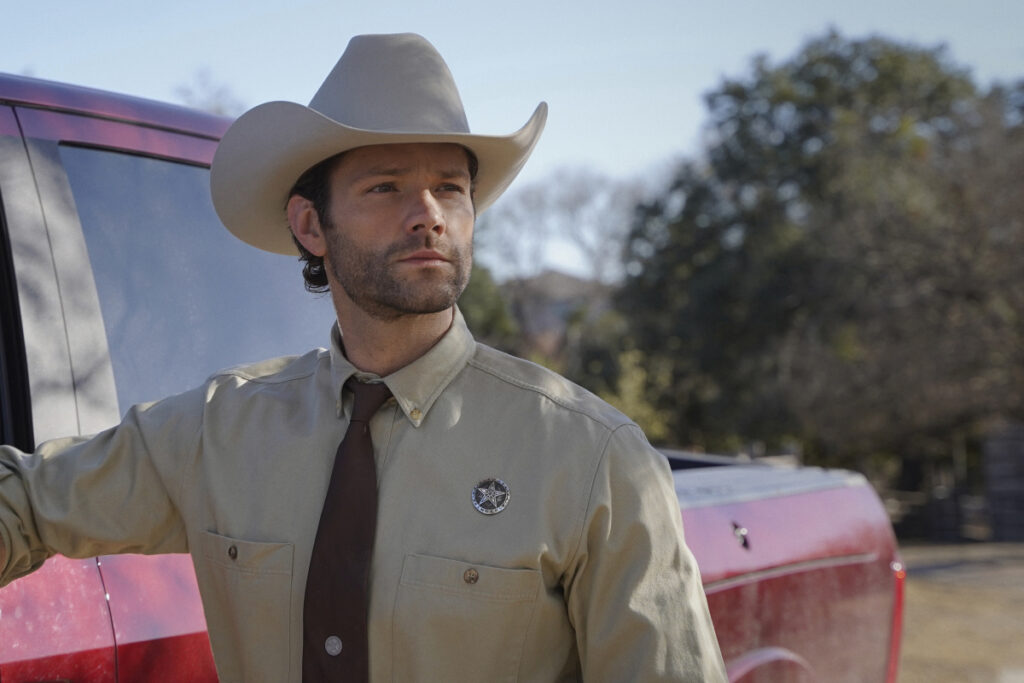When CBS created “Walker, Texas Ranger” in the ‘90s, it had a very simple, effective purpose—an action show for conservative America. Most episodes were showcases for star Chuck Norris to show off his martial arts skills, and it had a very black-and-white view of the world in terms of good and evil. It was a show thick with moral messages about the dangers of crime and drug use. Most of all, it was comfort food for millions, landing in the top 25 shows on TV for four years in a row. And the reboot craze of the current era that led to updated versions of shows like “Hawaii Five-0” and “MacGyver” meant a “Walker” update was basically inevitable, but the CW version, launching this Thursday, struggles to find its identity in the premiere. There’s only one brief scene that could be described as action and most of “Walker” plays like thin family melodrama, the story of a man trying to balance his important job as a Texas Ranger with his role as a parent, brother, and son. There are two charismatic leads in “Walker” and they could make it simple comfort food TV in a time when people seem like they need that more than ever, but it’s startling to say that this version feels like it’s even shallower and more simplistic than the one with the star of “Delta Force 2: The Colombian Connection.”

Cordell Walker is described in the season premiere as “The edge of the coin,” someone who is neither heads nor tails—someone who does things his own way. I wish this were true. As played by the charismatic Jared Padalecki, looking for another CW hit after the end of “Supernatural,” Walker is very much one side of the coin, and that’s one of the main problems with a show that wants to be a little progressive but can’t leave behind its black-and-white origins. He’s introduced driving a truck with that classic Stetson hat, the perfect amount of stubble, and a slight Texas twang. One thing he does often share with the Norris version is he’s more of the strong, silent type than the people around him. He’s there to get the job done. And that job has been interfering with his personal life.
After a violent prologue featuring the death of his wife (played by Genevieve Padalecki), “Walker” jumps forward almost a year. It turns out that Cordell fled reality by diving into his job, going undercover for ten months after the death, leaving behind his kids August (Kale Culley) and Stella (Violet Brinson). His son has been forced to grow up too soon and his daughter is in complete rebel mode, angry at her father for leaving them behind. Can Walker solve the case of the week and be a good dad at the same time? Walker’s father Bonham (Mitch Pileggi, who also did a memorable arc on “Supernatural”) and mother Abeline (Molly Hagan) fall into typical family drama roles as disapproving dad and supportive mom. There’s also a brother (Keegan Allen), who has been made the new ADA after basically taking care of his niece and nephew for a year, and then there are work colleagues, including a smart new partner in Micki Ramirez (Lindsey Morgan) and a former colleague turned boss in Larry James (Coby Bell).
Introducing audiences to this many characters and tossing in a mystery of the week so viewers know that’s what they’re in for makes the series premiere of “Walker” a little crowded, but it’s also surprisingly flat and slow in terms of pacing. None of these characters make much of an impact outside of Walker and Ramirez, which would be fine for an intro episode if the case wasn’t also very thinly conceived and executed. There’s just nothing here to hold onto, which can be fine for comfort food procedurals if that’s what fans are looking for but the best CW shows like “Supernatural” and “Riverdale” push back against conformity and the best shows like this elevate it. “Walker” isn’t the edge of the coin as much as one of those quarters that’s been through the system for so long that it’s lost all of its luster.
One episode screened for review.












